Description
ABSTRACT
A Critique of the Powers, Duties and Appointment of Directors in Nigeria
Ngozi Odiaka*
In modern company law, the separation of ownership from control is an important theme in the dynamics of corporate capitalism. Since the company is an artificial person, it can only act through its human agents. There is no doubt in the assertion that the power to manage the company’s affairs lies with the board of directors. This article examines the responsibilities of directors within the framework of a corporate entity. It is against the back drop of the significance of the board of directors that the law has ostensibly made copious provisions regulating their appointment, powers and removal. This article examines these provisions against the current legal and economic realities. The article subjects the powers, appointment and duties of directors to some critical analysis and argues that the role of the modern board of directors is a mere adornment to the corporate Christmas tree hence, a myth rather than a reality.
INTRODUCTION
The well-known principle that a company is a person both in a technical and practical legal sense because it is an artificial person created by law and therefore, can only act through its human organs, a legal person, has been given a statutory recognition.1 The legal model of a company is a system of power and control.2 The Company and Allied Matters Act3 provides for two organs of a company to wit: members in General Meeting and the Board of Directors.4 A director is defined as a person who is “only appointed by the company to direct and manage the business of the company”.5 The implication of this is that the powers and responsibilities of a company are to be exercised or discharged through its human organs. For this purposes, it becomes necessary for company law to assign these functions of the company and its management to the various organs of the company so that company law can fulfill its twin purposes of facilitating commerce and at the same time regulating companies.6 However, Section 244(2) CAMA 2004 provides that “in favour of any person dealing with the company, there shall be a rebuttable presumption that all persons who are described by the company as directors, whether as executive or otherwise, have been duly appointed. The Act criminalises the conduct of acting as a director without due appointment by imposing a fine of N100 for each day he so acts or holds himself out as director or imprisonment of 2 years.7
* Lecturer, Department of Private and Business Law, College of Law, Afe-Babalola University Ado-Ekiti
- Lennard Carrying Co. v Asiatic Petroleum Co. Ltd (1915) AC 704 at 713 714; Trenco Nigeria Ltd. v African Real Estate and Investment Co Ltd & anor (1978) 3 SC 9/ 1 LRN 146 at 153 Per Aniagolu, JSC. See also Asomugha, E M. ‘Company Management The Position and powers of the Directors and the General Meeting’ p. 144-161
- Ambush A.T. “The Paradox of the Distribution of Corporate Powers in Nigeria: Historical and Contemporary Perspectives. (2005) 4 Benue State University Law Journal 1
- CAP C20 Laws of the Federal Republic of Nigeria, 2004 (Hereinafter CAMA)
- Section 63(1), CAMA
- Section 244(1), CAMA
- Andrew Hicks A S.H: Goo, Cases and Materials on Company Law (3rd edn, British Library Cataloguing in Publication Data 1994)
- Section 244(3), CAMA 2004

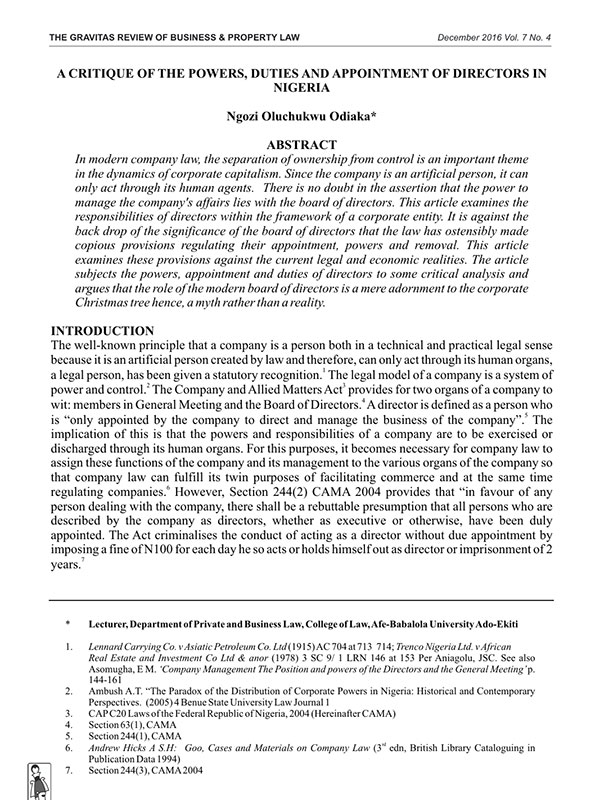
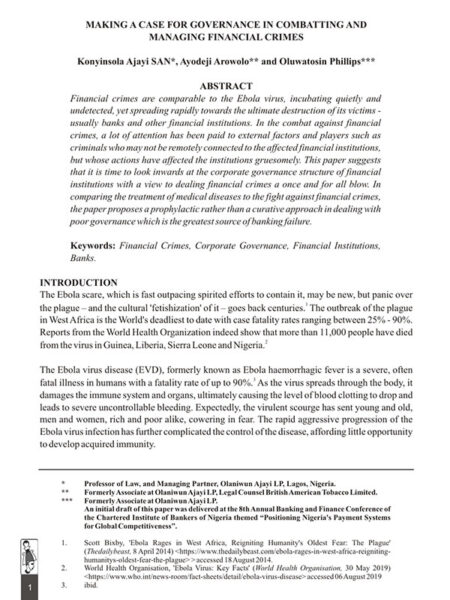
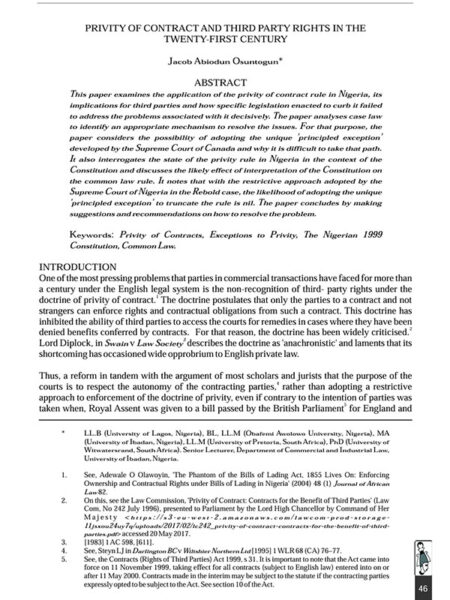
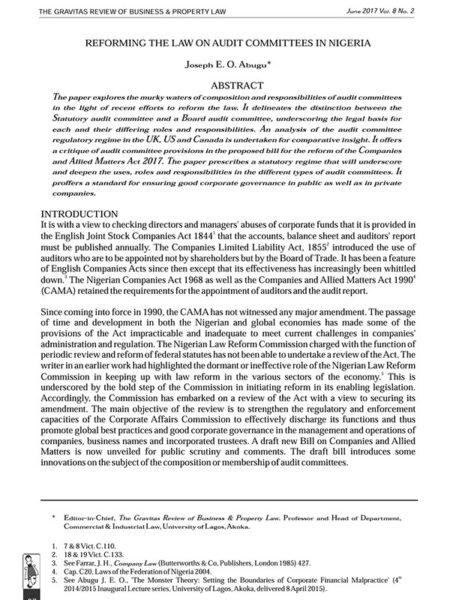
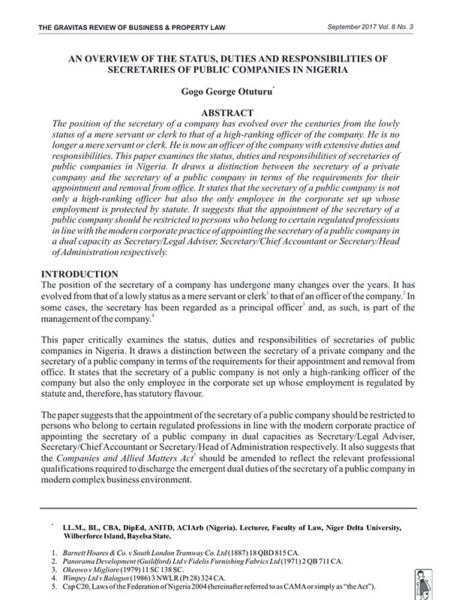


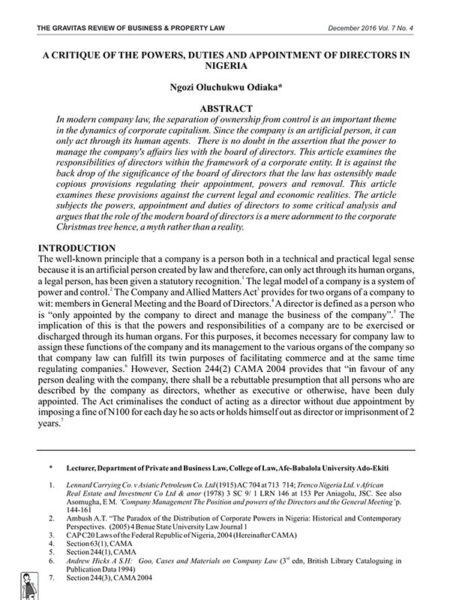
Reviews
There are no reviews yet.